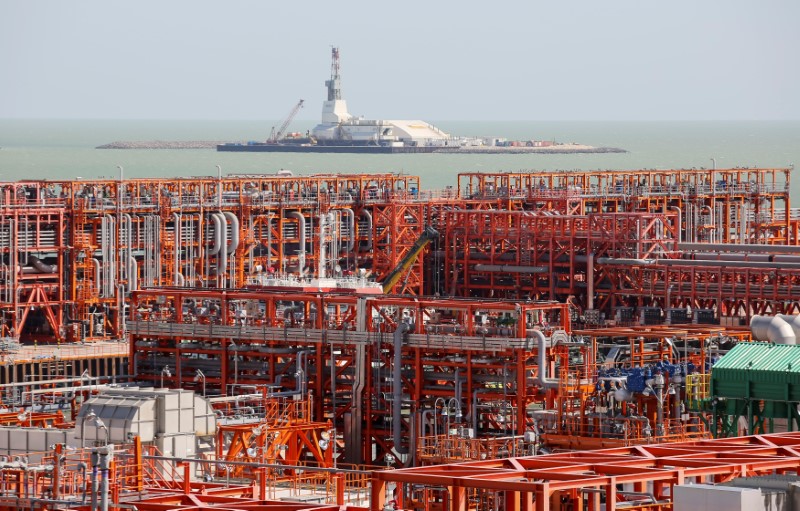By Barani Krishnan
NEW YORK (Reuters) - Oil prices rose more than 2 percent in volatile trade on Wednesday on speculation that OPEC members gathered in Algeria could lay the foundation for a production-limiting deal in November.
Crude futures had gyrated after a surprise drop in U.S. crude stockpiles for a fourth straight week was offset by a large build in gasoline.
Brent crude (LCOc1) was up $1.20, or 2.7 percent, to $47.17 a barrel by 12:56 p.m. EDT (1656 GMT). It fell to a session low of $45.70 earlier, slipping into negative territory.
U.S. West Texas Intermediate (WTI) crude (CLc1) rose by $1, or 2.2 percent, to $45.67.
Members of the Organization of the Petroleum Exporting Countries may announce an output freeze deal later on Wednesday at informal talks held on the sidelines of the International Energy Forum in Algiers, two OPEC sources said.
Full details of the plan may only be available in November, when OPEC's policy meeting in Vienna will be on, they said.
U.S. crude inventories
"The report is bullish," said John Kilduff, partner at New York energy hedge fund Again Capital. "Low imports continue to drag down overall crude inventories, defying expectations of a strong rebound."
Over the past month, U.S. crude inventories have slumped about 23 million barrels, according to the EIA.
But in the latest week, gasoline stocks
"With the situation we are in with crude supplies, even though we have seen draws over the last few weeks, we're still well above five-year averages on inventories," said Tariq Zahir, trader at Tyche Capital Advisors in New York.
"So we expect any strength we see to get sold into and prices to drift to new lows after this as we get to quarter-end this weekend. There could be more pressure if there's no deal from the OPEC talks at Algiers."
Crude prices fell 3 percent on Tuesday after Saudi Arabia and Iran, both OPEC majors, dashed hopes that they would find a compromise at the talks towards easing a global oil glut.

Iranian Oil Minister Bijan Zanganeh said on Wednesday the Islamic Republic would agree to curb production "at close to 4 million barrels per day". Iran's output has stagnated at 3.6 million bpd since the lifting of Western sanctions.